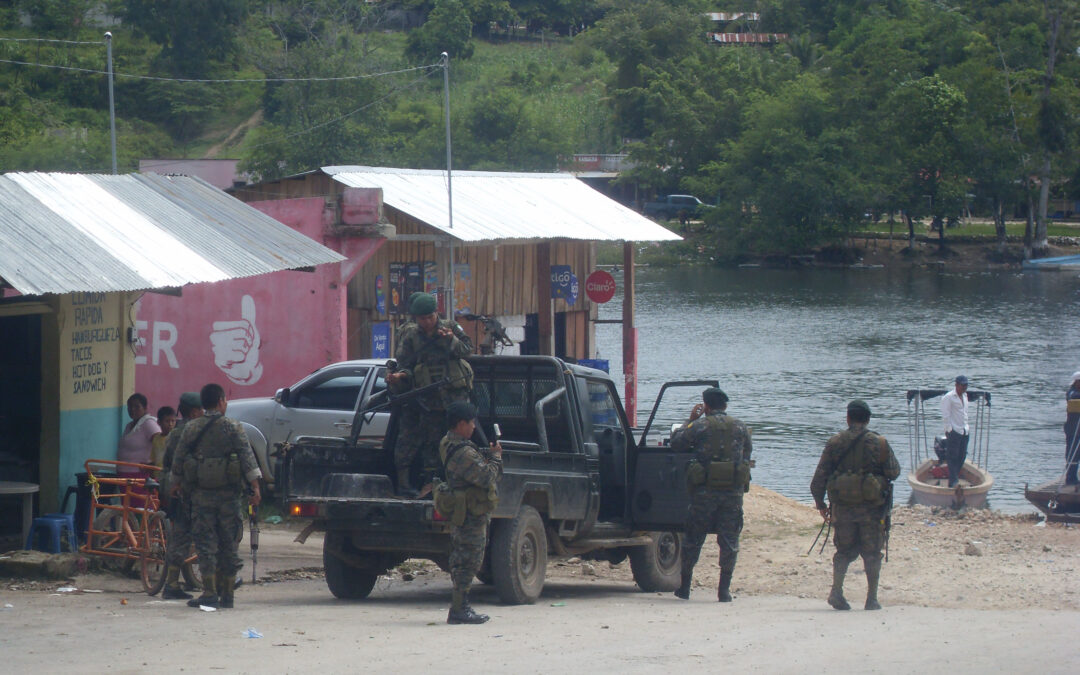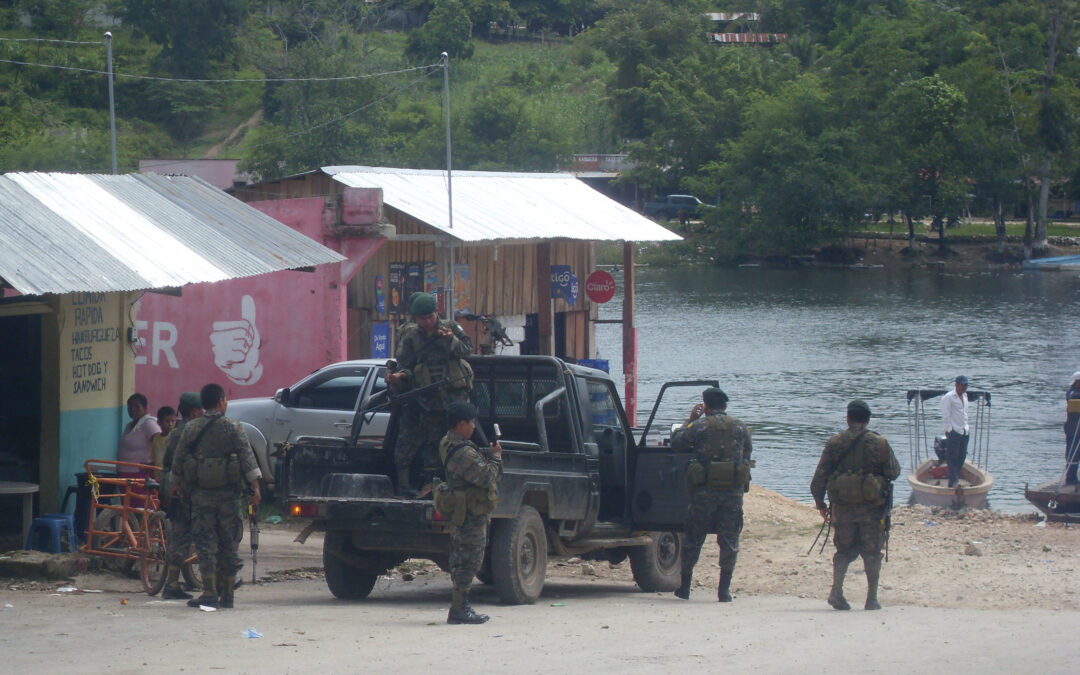
Jul 14, 2017
The ICJ submitted observations in a case brought with Forum for Human Rights, against the Czech Republic, in defense of children in the juvenile justice system.
The submission is a reply to the Government’s observations in this collective complaint before the European Committee of Social Rights.
In this case, the ICJ and Forum for Human Rights argue that the Czech Republic fails to ensure equal legal protection and participation of children below the age of criminal responsibility in the pre-trial stage of juvenile justice procedures.
The ICJ and FORUM submit that serious systemic flaws in the Czech juvenile justice system deprive a specific group of particularly vulnerable individuals – children below the age of criminal responsibility – of an adequate level of social protection and leave them at risk of inappropriate or unfair procedures leading to arbitrary punitive measures, in violation of Article 17 of the European Social Charter, both alone and read in conjunction with the principle of equality in the preamble to the Charter.
This situation concerns more than one thousand children every year and as a matter of urgency, it requires a structured response.
CzechRepublic-ECSR-juvenilejustice-legalsubmission2-ENG-2017 (download the submission)

Jun 5, 2017 | News
La CIJ espresa su más honda preocupación por los desalojos forzosos de las comunidasdes de Laguna Larga y la Mestiza, del Departamento de El Petén.
El pasado viernes 2 de junio, el Gobierno de Guatemala llevó a cabo un operativo militar en el Departamento de El Petén de desalojo forzoso de la comunidad Laguna Larga, situada en Laguna del Tigre en el municipio de San Andres, y tiene programado llevar a cabo otro de la comunidad La Mestiza, del mismo municipio, para el 14 de junio.
Como consecuencia de este operativo militar, la comunidad de Laguna Larga – alrededor de 600 o 700 personas, incluidos niños, mujeres y ancianos- decidió desplazarse en condiciones deplorables hacia territorio mexicano, en búsqueda de refugio y protección.
El sábado 3 de junio los miembros de la comunidad de Laguna Larga cruzaron la frontera y se encuentran actualmente en el municipio de La Candelaria, Campeche, México, en condiciones sumamente adversas. Varios niños y niñas muestran signos de enfermedades respiratorias.
Preocupa particularmente a la CIJ la situación física y mental de un niño que fuera perseguido por las fuerzas militares, durante el operativo de desalojo.
En repetidas ocasiones, la CIJ ha expresado que las comunidades que viven en los municipios de San Andrés y La Libertad en el departamento de El Petén, siguen enfrentando la exclusión sistemática por parte de las instituciones del Estado, así como violaciones graves a los derechos humanos, en particular violaciones a los derechos económicos, sociales y culturales.
Por el hecho de vivir en una zona protegida de conformidad con la Ley de Áreas Protegidas, el Estado guatemalteco considera a estas poblaciones como “ilegales” y las acusa de cometer el delito de “usurpación” de áreas protegidas, prohibiendo el ingreso de materiales de construcción, herramientas o cualquier bien que pueda garantizar o significar la más mínima “permanencia” en dichas comunidades o en la zona.
Recientemente fue detenido arbitrariamente el señor Jovel Tovar, acusado del delito de usurpación de áreas protegidas, quien se encuentra detenido en la cárcel de San Benito, en el Departamento de El Petén.
Paradójicamente, el Estado guatemalteco permite y facilita la explotación petrolera en dicha zona, de la compañía PERENCO, a pesar de que los derrames petroleros y otras actividades relacionadas con esa actividad, producen un serio deterioro a las reservas de agua dulce, las cuales son las más importantes de Mesoamérica.
La CIJ considera que esta política afecta seriamente los derechos de la población asentada en la zona.
En repetidas ocasiones, la CIJ ha podido observar que el Ejército de Guatemala, conjuntamente con la Comisión Nacional de Áreas Protegidas (CONAP), implementa operativos por medio de los cuales se lleva a cabo un acoso permanente a las comunidades que viven en las zonas protegidas.
La presencia del Ejército de Guatemala en la zona y la existencia de diferentes “retenes” militares son parte de la estrategia de acoso permanente a las poblaciones asentadas en la región, las cuales llegaron allí en el marco de un programa estatal en los años setenta, antes de la declaración de zona protegida.
Según la Constitución Política de la República de Guatemala, el Estado se organiza para proteger a la persona y no para perseguirla.
El acoso permanente a las comunidades, así como las políticas de Estado contra las personas que viven en las zonas protegidas, estableciendo “cercos de presión psicológica, material y militar”, constituye una política de Estado que contradice la Constitución Política de Guatemala, así como convenios y tratados en materia de derechos humanos – especialmente el Pacto Internacional de Derechos Económicos, Sociales y Culturales (PIDESC) de las Naciones Unidas-, que imponen la obligación al Estado de garantizar los derechos económicos, sociales y culturales y que toda persona disfrute del más alto nivel posible de salud física y mental.
Ramón Cadena, Director de la CIJ para Centro América expresó: “Esta política del Estado de Guatemala de desalojar a las comunidades de cualquier región del país en forma violenta, contraviene el Derecho Internacional de los Derechos Humanos y los estándares internacionales y el Estado de Guatemala debe ser declarado responsable y reparar los daños y perjuicios causados.”
Para mayor información:
Ramón Cadena, director CIJ C.A. al correo ramon.cadena(a)icj.org o a los telefonos +502 23601919; +502 23610538.
Leer más aqui:
Guatemala-Desalojo Peten-News-2017-SPA (en PDF)

Jun 5, 2017 | Noticias
La CIJ espresa su más honda preocupación por los desalojos forzosos de las comunidasdes de Laguna Larga y la Mestiza, del Departamento de El Petén.
El pasado viernes 2 de junio, el Gobierno de Guatemala llevó a cabo un operativo militar en el Departamento de El Petén de desalojo forzoso de la comunidad Laguna Larga, situada en Laguna del Tigre en el municipio de San Andres, y tiene programado llevar a cabo otro de la comunidad La Mestiza, del mismo municipio, para el 14 de junio.
Como consecuencia de este operativo militar, la comunidad de Laguna Larga – alrededor de 600 o 700 personas, incluidos niños, mujeres y ancianos- decidió desplazarse en condiciones deplorables hacia territorio mexicano, en búsqueda de refugio y protección.
El sábado 3 de junio los miembros de la comunidad de Laguna Larga cruzaron la frontera y se encuentran actualmente en el municipio de La Candelaria, Campeche, México, en condiciones sumamente adversas. Varios niños y niñas muestran signos de enfermedades respiratorias.
Preocupa particularmente a la CIJ la situación física y mental de un niño que fuera perseguido por las fuerzas militares, durante el operativo de desalojo.
En repetidas ocasiones, la CIJ ha expresado que las comunidades que viven en los municipios de San Andrés y La Libertad en el departamento de El Petén, siguen enfrentando la exclusión sistemática por parte de las instituciones del Estado, así como violaciones graves a los derechos humanos, en particular violaciones a los derechos económicos, sociales y culturales.
Por el hecho de vivir en una zona protegida de conformidad con la Ley de Áreas Protegidas, el Estado guatemalteco considera a estas poblaciones como “ilegales” y las acusa de cometer el delito de “usurpación” de áreas protegidas, prohibiendo el ingreso de materiales de construcción, herramientas o cualquier bien que pueda garantizar o significar la más mínima “permanencia” en dichas comunidades o en la zona.
Recientemente fue detenido arbitrariamente el señor Jovel Tovar, acusado del delito de usurpación de áreas protegidas, quien se encuentra detenido en la cárcel de San Benito, en el Departamento de El Petén.
Paradójicamente, el Estado guatemalteco permite y facilita la explotación petrolera en dicha zona, de la compañía PERENCO, a pesar de que los derrames petroleros y otras actividades relacionadas con esa actividad, producen un serio deterioro a las reservas de agua dulce, las cuales son las más importantes de Mesoamérica.
La CIJ considera que esta política afecta seriamente los derechos de la población asentada en la zona.
En repetidas ocasiones, la CIJ ha podido observar que el Ejército de Guatemala, conjuntamente con la Comisión Nacional de Áreas Protegidas (CONAP), implementa operativos por medio de los cuales se lleva a cabo un acoso permanente a las comunidades que viven en las zonas protegidas.
La presencia del Ejército de Guatemala en la zona y la existencia de diferentes “retenes” militares son parte de la estrategia de acoso permanente a las poblaciones asentadas en la región, las cuales llegaron allí en el marco de un programa estatal en los años setenta, antes de la declaración de zona protegida.
Según la Constitución Política de la República de Guatemala, el Estado se organiza para proteger a la persona y no para perseguirla.
El acoso permanente a las comunidades, así como las políticas de Estado contra las personas que viven en las zonas protegidas, estableciendo “cercos de presión psicológica, material y militar”, constituye una política de Estado que contradice la Constitución Política de Guatemala, así como convenios y tratados en materia de derechos humanos – especialmente el Pacto Internacional de Derechos Económicos, Sociales y Culturales (PIDESC) de las Naciones Unidas-, que imponen la obligación al Estado de garantizar los derechos económicos, sociales y culturales y que toda persona disfrute del más alto nivel posible de salud física y mental.
Ramón Cadena, Director de la CIJ para Centro América expresó: “Esta política del Estado de Guatemala de desalojar a las comunidades de cualquier región del país en forma violenta, contraviene el Derecho Internacional de los Derechos Humanos y los estándares internacionales y el Estado de Guatemala debe ser declarado responsable y reparar los daños y perjuicios causados.”
Para mayor información:
Ramón Cadena, director CIJ C.A. al correo ramon.cadena(a)icj.org o a los telefonos +502 23601919; +502 23610538.
Leer más aqui:
Guatemala-Desalojo Peten-News-2017-SPA (en PDF)

May 25, 2017 | News
The Philippine government must ensure that human rights are protected and respected in Mindanao, in light of the yesterday’s declaration of martial law and suspension of the writ of habeas corpus, the ICJ said today.
The ICJ reminds the Philippine government that it remains responsible for upholding its international human rights legal obligations, notwithstanding the imposition of martial law.
The ICJ also calls upon the Congress and, if engaged, the Supreme Court, to exercise their oversight authority to ensure that the declaration is necessary and lawful, and that the activities conducted under martial law respect human rights.
“The suspension of the writ of habeas corpus, which is vital for protecting the right to liberty and preventing torture, ill-treatment and enforced disappearance, must be lifted immediately,” said Frederick Rawski, ICJ’s Regional Director for Asia and the Pacific.
Rawski added, “The provision of the Philippine Constitution providing for the possibility of suspension of the writ of habeas corpus is in contravention of international law, and denying the right to challenge the lawfulness of a detention is incompatible with recognized principles of the rule of law.”
President Rodrigo Duterte declared martial law on the evening of 23 May 2017, covering the island of Mindanao, after Maute, an armed group that had pledged allegiance to the Islamic State of Iraq and the Levant (ISIL), reportedly laid siege on Marawi City. The next day, 24 May 2017, President Duterte suspended the writ of habeas corpus.
The ICJ recalls that the right to challenge the lawfulness of one’s detention through habeas corpus or similar procedures must always be available, even under states of exception like martial law.
The ICJ calls on the Philippine government to establish a clear timetable for an end to martial law, and to ensure in the interim that human rights are fully protected.
Background
Under Article VII, Section 18 of the 1987 Philippine Constitution, the President may declare martial law or suspend the privilege of the writ of habeas corpus in case of invasion or rebellion and only “when the public safety requires it.” However, Article VII, Section 18 of the 1987 Constitution limits a declaration of martial law to 60 days, and imposes other important limitations – including that the President of the Philippines must submit a report to Congress within 48 hours, which may then revoke the suspension or declaration.
Any citizen may petition the Supreme Court to review the sufficiency of the factual basis of the proclamation of martial law, or the suspension of the writ of habeas corpus. Finally, this provision of the Constitution also provides that in the case of a suspension of the writ of habeas corpus, any arrested or detained person must be judicially charged within three days, or be released.
Contact
Emerlynne Gil, ICJ’s Senior International Legal Adviser for Southeast Asia, email: emerlynne.gil(a)icj.org tel: +66 840923575.

May 23, 2017
The ICJ signed the open letter to the President, Prime Minister and National Assembly Chair of the Socialist Republic of Vietnam, calling them to release Pastor Nguyen Cong Chinh unconditionally and immediately and end harassment of his family. Vietnam-Pastor Nguyen Cong Chinh-Advocacy-Open letters-2017-ENG (full text in PDF)









